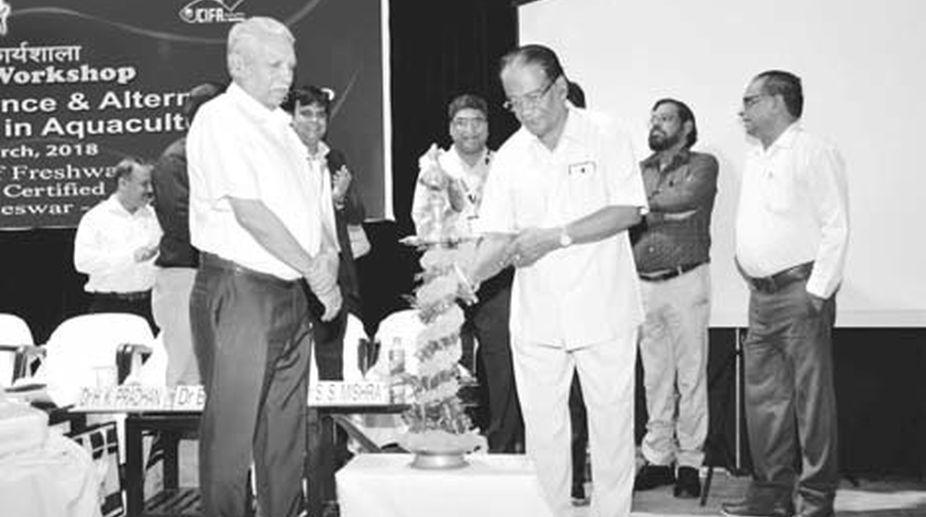The ICAR-Central Institute of Freshwater Aquaculture, Bhubaneswar under the aegis of All Indian Network Project on Fish Health and Association of Aquaculturists (AoA) conducted two days National Workshop on “Antimicrobial Resistance & Alternatives to Antibiotics use in Aquaculture (AMR-2018)” at its campus,on the outskirt of Bhubaneswar.
Antimicrobial resistance (AMR) is one of the major public health problems especially in developing countries where relatively easy availability and higher consumption of medicines have led to a disproportionately higher incidence of inappropriate use of antibiotics and greater levels of resistance.
Advertisement
AMR is rising to dangerously high levels in all parts of the world. The root cause of problem seems to be overuse or abuse of antibiotics and antimicrobial preparations in health management both in humans and animals including aquaculture.
Without standard treatment guidelines, antibiotics are very often over-prescribed by health workers and veterinarians and over-used by the public.
Over the counter availability of Antibiotics has been the major cause of abuse of antibiotics, responsible for development of resistant strains of microbes called AMR.
World Health Organization (WHO) has warned that AMR is happening and spreading in a rapid form.
Fisheries will not be an exeption, and AMR will take its toll on food fish production informs Dr. S.S. Mishra, Organising Secretary of the workshop.
The workshop is being attended by over 120 participants consisting of Scientists, researchers, policymakers and progressive farmers. Dr Umesh Alavandi, Project Management Specialist Health Office, U.S. Agency for International Development, spoke on the occasion and emphasized on AMR in human health.
Dr Dilip Kumar, Ex-Director/VC of ICAR-CIFE highlighted the negative impact of AMR and phenotype & genotype modifications happening as a consequence of AMR.
He spoke about potential problems caused due to colonisation of the microbes that prevent the antibiotic efficiency as well as the environmental alterations as possible consequences.
Dr B.K. Das, Director, ICAR- CIFRI, Kolkata drew attention to the indiscriminate use of antibiotics in aquaculture. He mentioned about river bed sediments showing antibiotics.
Dr J.K. Sundaray, Director, ICAR- CIFA stressed on the need for implementation of targeted policies to combat AMR. He urged for concrete solution to come from the technical sessions.
Dr H. K. Pradhan, ex-Head of High-Security Animal Disease Laboratory, Bhopal and WHO Consultant; Dr V. V Sugunan, Ex-ADG-ICAR & FAO Consultant; Dr. B. C. Kar, Former Professor & Head, Microbiology, OUAT, Bhubaneswar; Dr. Debajit Sarma, Director, ICAR-DCFR, Haldwani also addressed the gathering.











